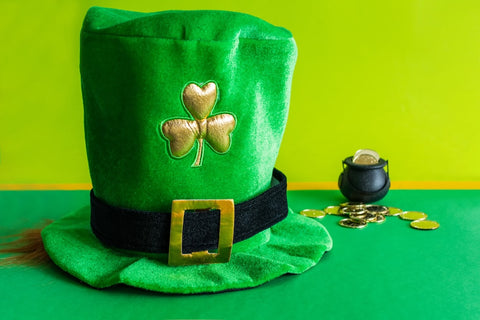Saint Patrick's Day, also known as the Feast of Saint Patrick...
Posted by Michael Moder on
Saint Patrick's Day, also known as the Feast of Saint Patrick, is a cultural and religious holiday celebrated on the 17th of March every year. It is named after Saint Patrick, the patron saint of Ireland, and is a public holiday in Ireland, Northern Ireland, and the Canadian province of Newfoundland and Labrador.

The holiday originated as a day to commemorate Saint Patrick, who is credited with bringing Christianity to Ireland. Saint Patrick was born in Britain in the 4th century and was kidnapped by Irish raiders when he was a teenager. He spent six years in Ireland as a slave before escaping back to Britain. After becoming a priest and bishop, he returned to Ireland to spread the Christian faith and is said to have used the shamrock, a three-leaved plant, to explain the Holy Trinity to the Irish people.
The first Saint Patrick's Day parade is believed to have taken place in New York City in 1762, when Irish soldiers serving in the British army marched through the city. In Ireland, the day was initially celebrated as a religious holiday and was marked by attending church services and feasting with family and friends.
In the late 19th and early 20th centuries, the holiday became more secular and evolved into a celebration of Irish culture and heritage. Today, Saint Patrick's Day is celebrated with parades, concerts, and festivals all over the world, with the largest celebrations taking place in Dublin, Ireland. The day is also marked by wearing green, the color associated with Ireland, and drinking beer, especially the Irish stout Guinness.
Although Saint Patrick's Day is most closely associated with Ireland, it is also celebrated by Irish communities and those with Irish heritage in many other countries, including the United States, Canada, Australia, and New Zealand. In these countries, the holiday has become a way to celebrate Irish culture and identity, and many people of non-Irish descent also join in the festivities.
In conclusion, Saint Patrick's Day is a holiday with a rich history and cultural significance that is celebrated all over the world. Whether you are Irish or not, it is a day to come together with friends and family, to celebrate Irish heritage and culture, and to have a bit of fun.
Share this post
- Tags: Australia, Canada, Dublin, Feast of Saint Patrick, Guinness, Ireland, New York City in 1762, New Zealand, Saint Patrick, Saint Patrick's Day, United States
